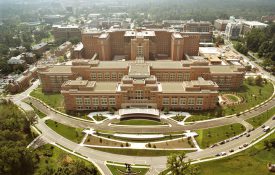-

Innovative Addiction Treatments Hold Promise for Stemming the Opioid Crisis
In a new issue of Psychological Science in the Public Interest, researchers propose novel treatment strategies, based on advances in brain science, that could help prevent abuse of opioids and other drugs.
-

Future Funding Opportunities from the National Institute of Mental Health
The National Institute of Mental Health (NIMH) has announced a set of areas of interest that will inform future funding opportunities offered by the institute. These new concept clearances may serve as the basis for
-

Russell Sage Foundation Offering Early and Mid-Career Grants
Early and mid-career professors of psychological science are encouraged to apply for the Pipeline Grant Competition. The integrative grant supports tenure-track assistant professors and associate professors who propose research projects aligned with the Russell Sage Foundation mission, which is to improve social and living conditions in the US.
-

Roundup of NIH Research Career Development Award Resources
NIH awardees or applicants interested in NIH Career Development (K) awards can use these resources as a starting point to getting answers to their funding questions.
-

New Research From Psychological Science
A sample of research exploring effects of hypnotic suggestion on implicit attitudes and ways to enhance children’s understanding of scientific models.
-
A Neurobehavioral Approach to Addiction: Implications for the Opioid Epidemic and the Psychology of Addiction
Psychological Science in the Public Interest (Volume 20, Number 2) Read the Full Text (PDF, HTML) In recent years, heroin and other opioid fatalities have escalated to crisis proportions, intensifying the need for evidence-based recommendations for educational and policy campaigns to prevent abuse of opioids and other substances. Understanding the neurobiological mechanisms underlying drug-seeking behaviors is vital to creating these prevention campaigns. To fully provide a neurobehavioral view of addiction, it is important to answer two major questions: (a) why do people seek drugs in the first place?

